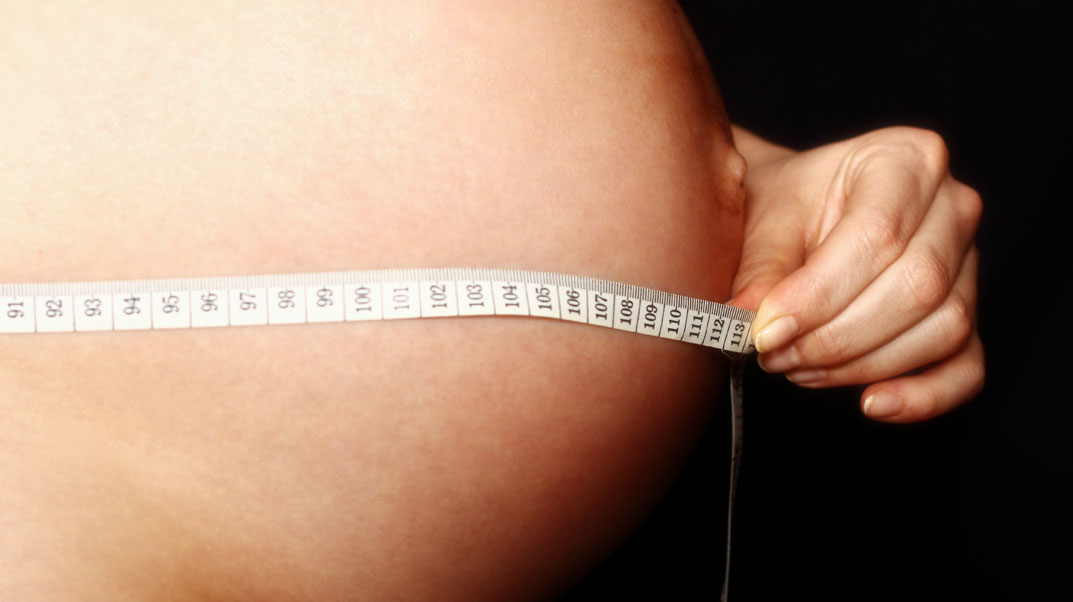blog tambre
How your weight affects fertility and your chances of getting pregnant

Table of contents
Achieving and maintaining a healthy weight whilst you are trying to conceive is important for your fertility and general health. Having a high or low body weight for a man or woman can have a negative impact on your physical and emotional wellbeing as well as potentially affecting your ability to get pregnant.
Your ideal weight
A Body Mass Index (BMI) is a recognised tool used for measuring weight. It is a number which is based on your height and weight to signify whether you are underweight, overweight or within a healthy range.
- If you have a BMI of under 18.5 you are considered underweight.
- A BMI range of 18.5 to 24.9 is considered ‘healthy’
- Between 25 and 29.9 suggests you are overweight
- A BMI of over 30 indicates obesity.
BMI provides a standardised index which is used across the globe as an indicator of health levels. Whilst it provides a good baseline from which to judge your healthy weight it does not measure excess fat or how fat is distributed around our bodies. The extent and distribution of fat is important as higher levels of fat in certain body areas like the waist is thought to place individuals at a greater risk of health problems.
As we all have different body shapes it would be impossible to create a standardised measurement index which would accurately determine a person’s ideal weight, health status or their potential health risks. BMI however provides the closest generic measurement system we have access to and therefore provides a good starting point.
Can your BMI affect your chances of pregnancy?

There is some disagreement among fertility experts about the accuracy and usefulness of measurement tools such as BMI as we have discovered. The tool is used to indicate weight distinctions and not everyone who is underweight or overweight will have problems getting pregnant. Despite an agreed, definitive relationship between weight and fertility, the research and experiences of patients would indicate that if you are either side of the BMI healthy weight score of 18.5 to 24.9 you could potentially have more difficulty conceiving.
Much debate around the relationship between BMI and fertility is based around the extent to which a high BMI affects conception. Being underweight (with a BMI under 18.5) would also seem to have an impact on fertility health. Individuals who are underweight are more susceptible to hormone imbalances which can affect ovulation, reducing the chances of pregnancy.
If a woman is underweight but does get pregnant she is also at a higher risk of miscarriage and delivery of an underweight baby. If you are a man or woman with a high BMI this can cause a number of issues which appear to place a significant barrier to successful conceptions as we shall now discover.
BMI, men and infertility
Men with a high BMI (25+) are likely to experience more issues with fertility than someone within the healthy BMI range. Overweight men are more likely to experience hormone problems, erectile dysfunction and other conditions linked to obesity which can have a detrimental effect on sperm on volume and quality.
BMI, women and infertility
Women with a high BMI (25+) may also experience difficulties in getting pregnant. It can cause a multitude of problems including hormonal imbalances. Overweight and obese women have higher levels of the hormone, leptin, which is produced in fatty tissue and this can lead to reduced fertility. Weight gain will also increase fatty tissue which in turn will release oestrogen. Increased levels of oestrogen can inhibit ovulation and prevent healthy periods.
There is also research which highlights additional complications apart from delayed conception that are experienced by women with a high BMI. These include increased miscarriage rates, and reduced outcomes in assisted conception treatments.
Preparing for pregnancy
Whilst the relationship between BMI and fertility health is important there is still a debate about the extent to which weight affects your chances of getting pregnant. However, if you have a high BMI you may still be at higher risk of other health conditions such as heart disease, high blood pressure, type 2 diabetes, and certain cancers.
You can mitigate these risks by following a weight loss programme, eating a balanced diet, or making other lifestyle modifications like taking more exercise which can improve mental and emotional health, restore ovulatory and sperm health and consequently the likelihood of conception.
The Tambre team are experts in assisted reproductive treatments. If you are experiencing delayed conception and have concerns about your BMI talk to us. We can help you prepare for treatment and have a network of partners who are skilled in providing help with weight management. Your BMI shouldn’t be a barrier to accessing fertility treatment and at Tambre we will do our utmost to help you address any issues and prepare you for a healthy pregnancy.
Ready to take the next step on your fertility journey?
At Tambre, we combine advanced reproductive medicine, scientific expertise and personalised support to help you prepare for treatment – whatever your starting point. Your BMI should never be a barrier to building a family. Our team will guide you with compassion, clarity and a plan that truly fits your needs.
Contact us and book your first consultation


